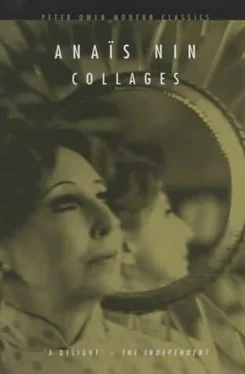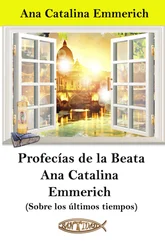The bar was concealed by New Orleans shutters. There were old Turkish rugs on the tile floor. The pillows around the fireplace were from Thailand. There were French modern paintings on the walls and a Russian icon. The black lacquer furniture was pseudo-Chinese.
The secretary was not coquettish. She was dressed in a plain black sheath and wore two yards of dime store pearls. She led Renate to the living-room. On the way to the living-room Renate noticed the table covered with magazines. They were not risque. They were art magazines, one of them on the new churches built in France with abstract Christs and abstract Madonnas painted by modern painters.
The Consul stood near the door. He was slight of build, with large sea-green eyes, a southern skin, and a mouth whose design was marred by a contraction of the upper lip which gave him an air of sneering, or of pouting, a twist which gave his whole face an ambiguous expression. He might have been a conventionally handsome man, but this sneer gave him a slightly sinister air.
Renate was to learn later in the evening that it was due to a wound he had received during the war, and then she was distressed to think she had judged his character from his facial design and that this design had been distorted by external circumstances. She tried to reconstruct his face as it might have been before the war. She wondered if this wound had influenced his moods too, for she had heard that he was melancholic in private and gay and witty in public. At the door he had kissed her hand and said to her: “We are celebrating a literary prize I received for my book.” He said this in a wistful tone. Renate asked with her natural frankness: “You do not seem to be rejoicing over it.”
“It’s true, but that’s because it came too late.”
“Too late! But you’re at the prime of life!”
It came too late, just the same, too late for my mother to know about it. She died during the war. It was she who wanted me to become a famous writer. I did it for her. Now it does not seem to matter very much. Why do I write? What does it bring me? One either fails in one’s art or in one’s life.”
“Look what your writing brings you. You are surrounded by beautiful women, your books are being filmed, you travel, and everywhere you go you have friends. I wanted to meet Jean Delatouche. I was attracted to his imagination and his wit.”
“And you’ll be disappointed when I tell you I am not Jean.”
“You mean, you are no longer Jean. You have become someone else.”
“I never was Jean. I was the non-hero of the book, the half-gangster, the ambiguous adventurer. The hero was the man my mother wanted me to be. The gangster was me. The man you came to see is the hero of the book. The world I create I leave behind me, like an old skin.”
The Consul’s wife was English. She extended a pale blonde hand, her delicately tinted face and pale blonde hair were almost eclipsed by a Chinese mandarin coat, heavily embroidered.
When Renate admired it she said: “It conceals the bulges.”
Then looking wistfully at the Consul who did not kiss all the women’s hands, only the pretty ones, she added: “Other people have breakdowns when they do not succeed. He has them when he has a success which his mother cannot enjoy. He is only really happy when he is locked upstairs with his writing.”
The Consul was opening the champagne delivered by the French Navy. He wore both martial and literary decorations. He made everyone laugh with sallies and remarks he made without smiling. Most of the time he did not appear at parties, but let his wife officiate. Visitors sometimes caught sight of him as he opened his window for a little fresh air and then his wife would say: “He is working on his novel.”
The patio evoked Algerian settings. It was sheltered by a pepper tree and the Consul’s wife had decorated it with Moroccan rugs and a Turkish coffee set of copper inlaid with floral designs.
The cook was Russian. Her hobby was collecting stray cats and injured dogs. More often when she came to the salon it was not to bring ice but to ask the Consul’s wife for bandages or aspirin for the animals. The ice never came, but the Consul’s wife told the Westerners in love with space about the advice given to her by her Russian maid which had proved valuable: “When your thoughts have too much space, they fly off into the infinite. It is necessary to work and think in an enclosed room, then the thoughts cannot escape. They rebound.”
Officially, publicly, in the eyes of the world, publishers, magazines, and television people, it was he who was the writer. His books were known, he had received prizes, and films were being made of thm. Very few people knew that the Consul’s wife was a writer too.
She had written a vivid book about four English women who had wanted to escape from England to the Orient, had wanted an adventurous life, and had all succeeded and fulfilled their desires richly and fully.
She was herself physically such an exact replica of the delicately tinted women of English paintings that it was difficult to remember her features. The shell rose, the faintly drawn features were always about to vanish in one’s memory. Her smile, her pale blue glance were all evanescent. One could not at first relate her tothe characters she had painted in such rich colors, women of daring, of defiance towards conventions, and above all, women who had been led completely by their passions and their whims.
They seemed so distinct from her that Renate wondered how she had selected them and lived in intimacy with them during years of library research in many cities.
But the link between them appeared gradually and subtly. She had lived in the consulates of the countries she described. The antique Turkish rug on the floor did not come from a Turkish bazaar. In Los Angeles she had discovered a Turkish rug merchant in a plain and homely street. Her knowledge of the language was so perfect that the merchant had invited her to have native coffee with him. In an enormous loft all the rugs were piled up upon one another. And it was on top of them, at least two yards from the floor, that he had the copper tray put down for them to squat by, Turkish fashion.
She had already too many rugs and her husband complained but she could not resist taking another one home now and then.
The last one was so ancient that only the backing showed, and very little of the colored wool’s design, but she knew what this design had been.
She even preferred to re-weave these missing fragments in her mind. It was a spiritual discipline which enabled her, sitting in the California patio, to re-weave the fragments of her life in foreign places. She could find the smell and colors of those evenings spent sitting on the cream white roofs of Turkish houses, not on chairs but on Turkish rugs and pillows. She could see every flower, leaf, tendril reborn as a lyric melody of warm colors like the colors of her life with the Consul. She could re-live visits to the bazaars and cafes, night in the desert in Arab costumes, scenes of dances, of tribal war rehearsals, and hear the melodies, chantings and laments while smoking opium.
Many times it was she who explored the labyrinthian cities of the Orient while the Consul stayed in his room to write. So that when she came to write the biographies of those adventurous exiled English women, she knew the clothes they wore, the food they ate, the contents of their trunks, baskets, and handbags, details about the furniture, the insides of the houses, contents of caravans, the talk of servants. Her husband said “She was always buying things in bazaars, things we did not need, which we had to carry about.” He did not know she was collecting props which later she used lovingly in her biographies.
In Los Angeles her bed had a muslin canopy such as she must have had as a young girl, and Renate felt that whin the mature woman a young and virginal adolescent was still sleeping under her first communion and wedding dress innocence. It was the bed of an unawakened woman, and even though grey hairs showed at the roots of the grey-blonde hair, the pale blue ribbon which bound it proclaimed a freakish error in nature’s calculations. It had a buoyant air, an undaunted flying pennant which may explain why only surprise showed in her eyes when the Consul confessed his obsession with young girls.
Читать дальше












